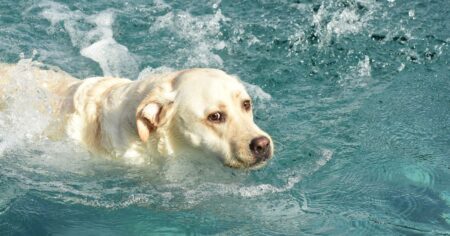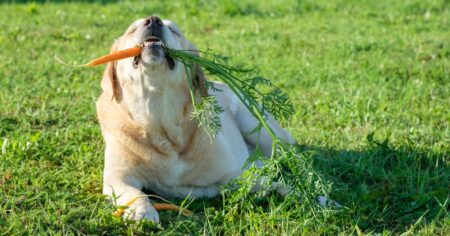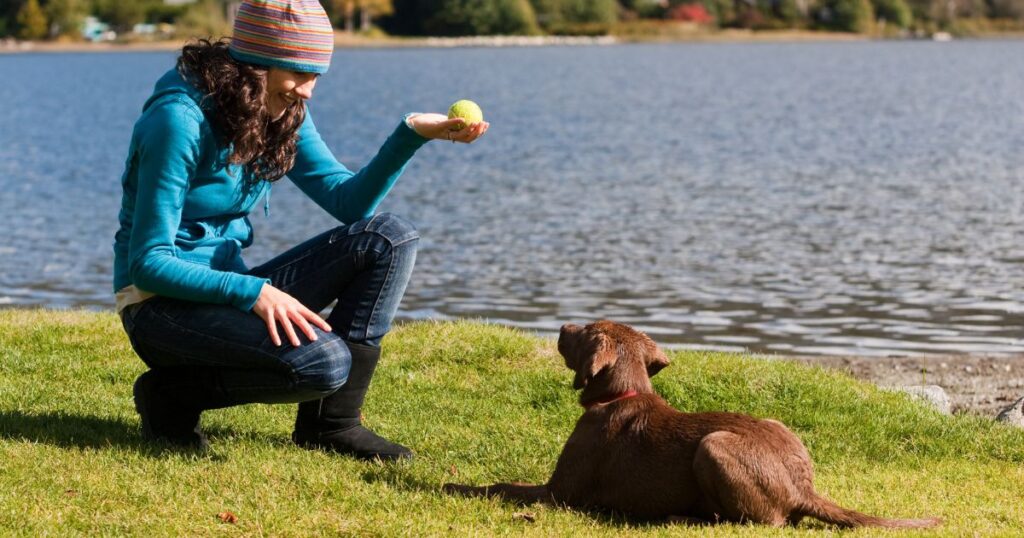
Training a Labrador puppy is an exciting and rewarding experience for both the owner and the puppy. It’s important to start training at the right time to establish a strong foundation for lifelong learning and develop a well-behaved, obedient companion. Deciding when to start training your Labrador puppy depends on various factors, including the puppy’s age, temperament, and your preferred training method.
Different trainers have varied opinions on when to begin the training process. Some recommend starting as early as 4 weeks old for working dogs, while others suggest waiting until the puppy is at least 8 weeks old when they transition into their new homes. The key is to be consistent and patient throughout the training journey.
Modern positive reinforcement methods allow training to begin at an earlier age without causing unnecessary stress to the puppy. These techniques focus on rewarding good behavior and gently correcting undesirable actions. By starting at the right age and using effective training methods, Labrador puppies will grow into well-adjusted, happy dogs that are a pleasure to have around.
How Puppies Learn
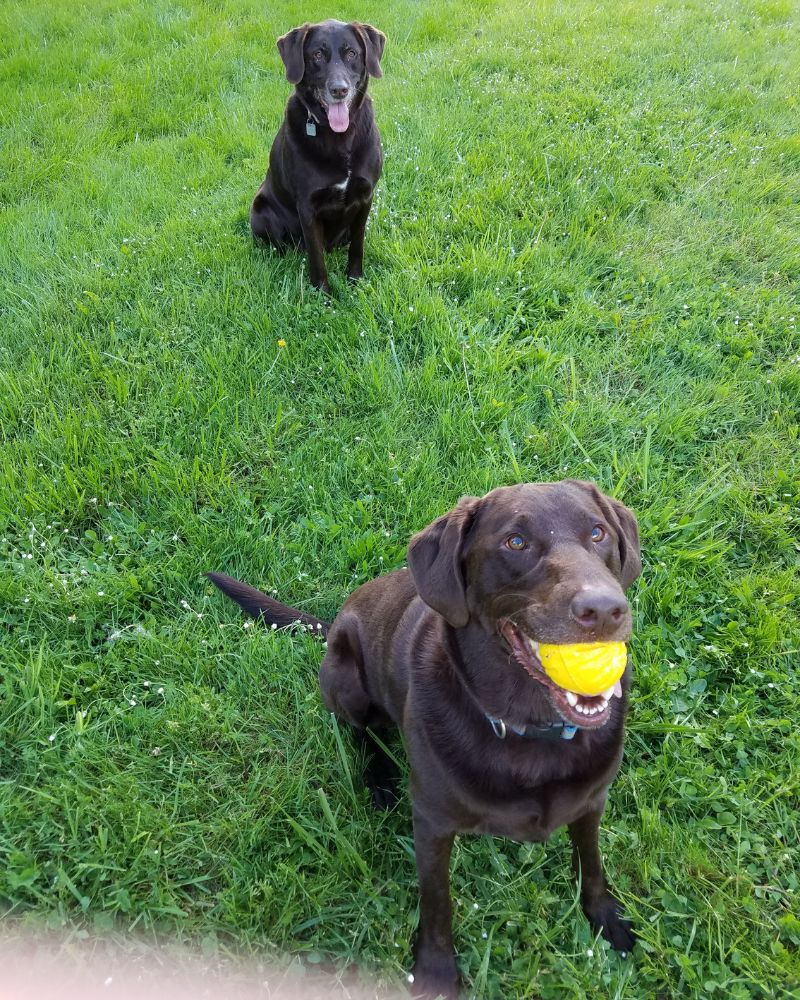
Puppies, like humans, learn through their experiences and the environment they are exposed to. During their early developmental stages, puppies are like sponges, ready to absorb knowledge about the world around them. One vital aspect of this learning process is the introduction of training and socialization.
From the young age of 8 weeks, Lab puppies can begin to learn through positive reinforcement methods. By using these modern methods, training can be a non-stressful and enjoyable experience for both the pup and the trainer. Positive reinforcement involves rewarding good behavior, reinforcing the desired behaviors through praise, treats, or other rewards, and making the learning experience fun.
Labs, being intelligent and easily trainable, can pick up on cues and commands from an early age. For successful learning, it is crucial to use age-appropriate training exercises and to be patient and consistent in training sessions. Remember to break down the training into small, manageable chunks to help the puppy understand and retain the information better.
Another essential part of your Lab puppy’s learning process is socialization. Exposing the puppy to different environments, people, and other animals helps them learn how to navigate the world safely and confidently. It is advised, however, to refrain from taking puppies to dog parks during their early months and focus on controlled, positive, and safe experiences for the best results.
What Age to Start Training Labrador Puppy
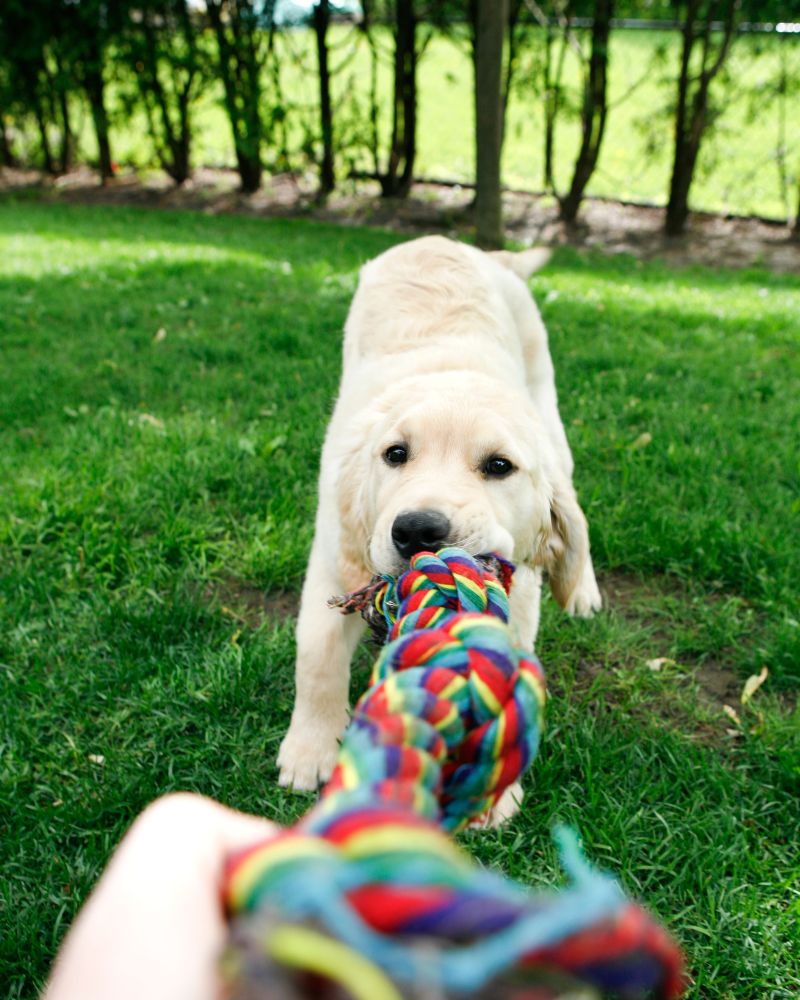
Starting to train a Labrador puppy at the right age is essential for their development and behavior in the future. Ideally, training should begin as soon as you bring the puppy home, typically around 8 weeks of age.
One reason to start training at 8 weeks is because this period is crucial for socialization and development. According to Dr. Carmen Battaglia, by 6 months of age, almost all behavior problems are already in place. Therefore, starting early helps to prevent or mitigate potential issues.
When training your Lab puppy, it’s essential to work in small exercises and use positive reinforcement. This would include short house-training, impulse-control exercises, and introducing socialization gradually to avoid overwhelming your puppy, as suggested by MasterClass.
As your Labrador pup grows older, you can introduce more advanced training and gradually increase the difficulty based on their age and progress. The key is to stay consistent, patient, and make the training process enjoyable for both you and your puppy.
Use Positive Puppy Training Methods
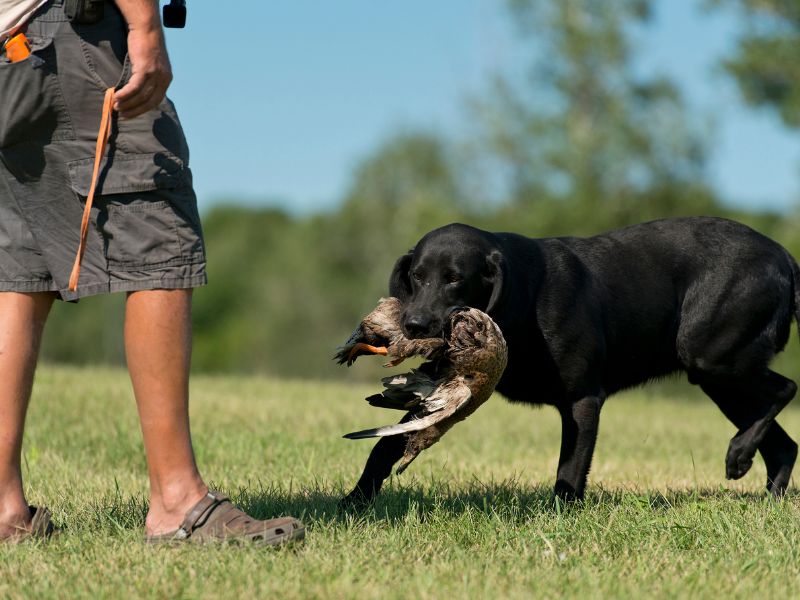
When training a Labrador puppy, employing positive, reward-based techniques is crucial for nurturing a strong bond and establishing good behavior. In the early stages, puppies as young as 8 weeks old can begin basic training. The initial sessions should be short, enjoyable, and consistent.
Positive reinforcement methods involve rewarding the puppy with praise, treats, or toys when they perform a desired behavior. This approach helps the puppy associate positive outcomes with obeying commands. It’s essential to immediately reward the puppy after they follow a command to strengthen the connection between the action and the reward.
Lure-and-reward techniques can be highly effective in teaching new commands. For example, holding a treat above the puppy’s nose and gradually lifting it up can encourage the puppy to sit. Once they sit, immediately praise and reward them with the treat. Repetition and consistency are key components in successful training.
Avoid using punishment or aversive training methods, as they can harm the bond between the owner and the puppy, and may cause fear or aggression. Instead, focus on teaching the puppy what they should do, rather than punishing what they shouldn’t do.
Additionally, using a training schedule can help both the owner and the puppy stay on track with their progress. Introducing 2-4 new commands per month, progressing from simple gesture-triggered cues to more complex verbal cues, allows the puppy to continually learn and grow.
By employing positive, reward-based training methods and following a consistent schedule, Labrador puppies will develop into well-mannered and obedient companions, strengthening the bond between pet and owner in the process.
Basic Training Concepts Every Puppy Should Learn
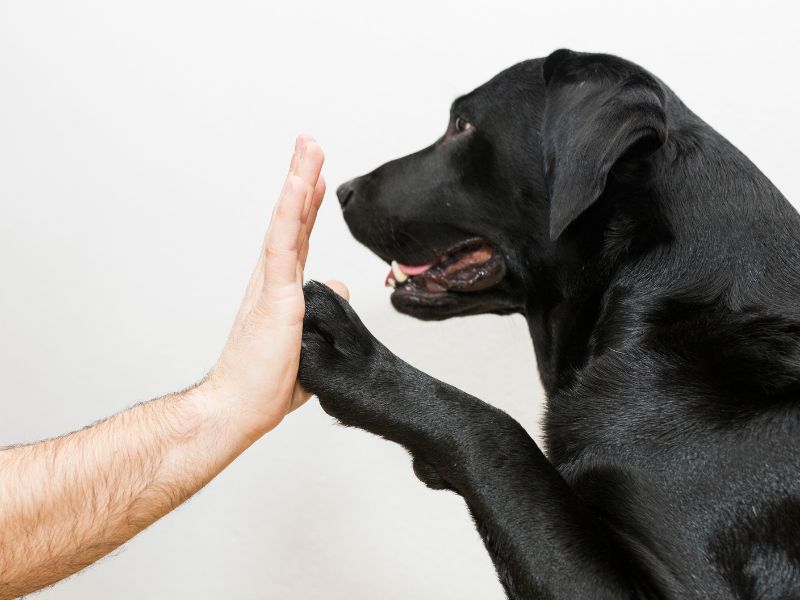
When it comes to training a Lab puppy, there are several essential concepts that every puppy should learn. These concepts will not only make training easier, but also enhance the relationship between you and your dog.
Dog Socialization
Early socialization is crucial for a well-rounded and well-behaved Lab puppy. Puppies should be introduced to a variety of people, dogs, and environments starting as early as 8 weeks old, according to The Labrador Site. This exposure helps your Lab develop the confidence and adaptability needed to navigate various situations throughout their life.
Crate Training for Dogs
Crate training is an essential part of house-training your Lab puppy. It teaches them to feel comfortable and secure in their crate, making it easier for them to relax when left alone. Introduce your puppy to their crate gradually, and always associate the crate with positive experiences, such as treats and praise.
Training Your Lab to Have Good Manners
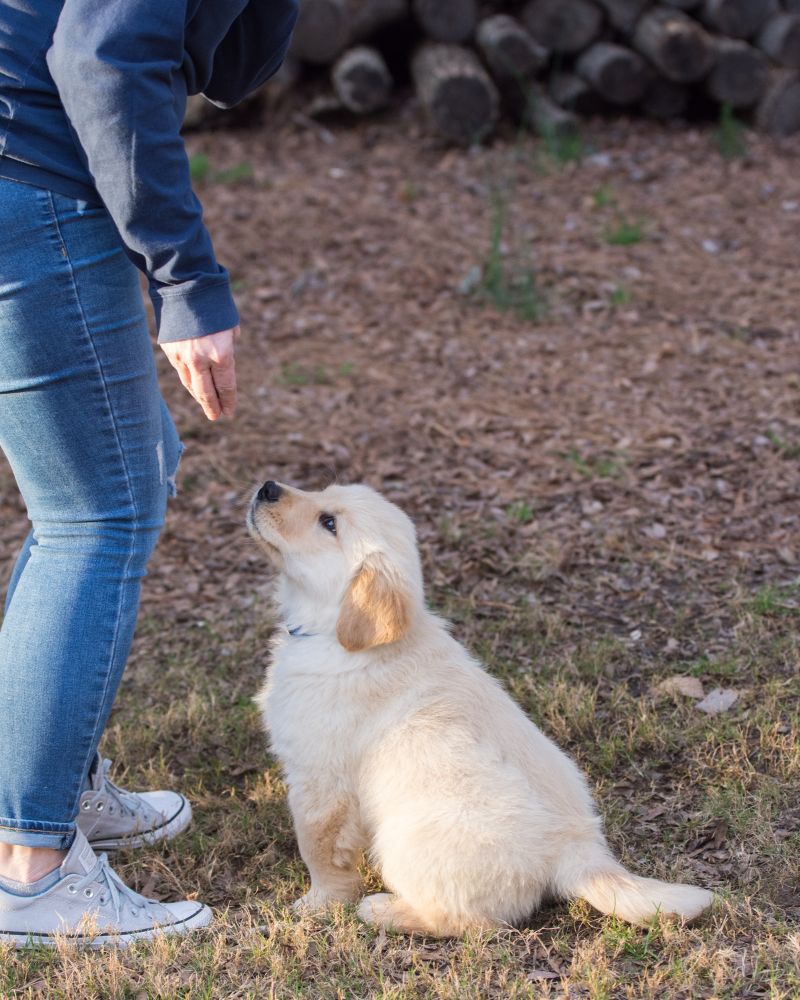
Good manners are an important aspect of your Lab puppy’s training. Start by teaching your puppy basic cues like sit, stay, and come, as suggested by PetMD. Consistently rewarding your puppy for responding to these basic commands will lay the foundation for a well-behaved dog. Remember to use positive reinforcement, such as treats and praise, to encourage desired behaviors.
Other Training Essentials
Beyond socialization, crate training, and manners, there are several other essential training concepts for your Lab puppy, such as:
- Leash training: Teach your puppy to walk politely on a leash without pulling. This will ensure pleasant walks and help prevent accidents.
- House-training: Establish a routine and use positive reinforcement to teach your puppy where they should eliminate.
- Puppy-proofing: Make sure to remove any potential dangers from your home and create a safe environment for your Lab puppy to explore.
By focusing on these basic training concepts, your Lab puppy will be well on their way to becoming a well-behaved and obedient companion.
When to Start Training a Lab Puppy to Hunt
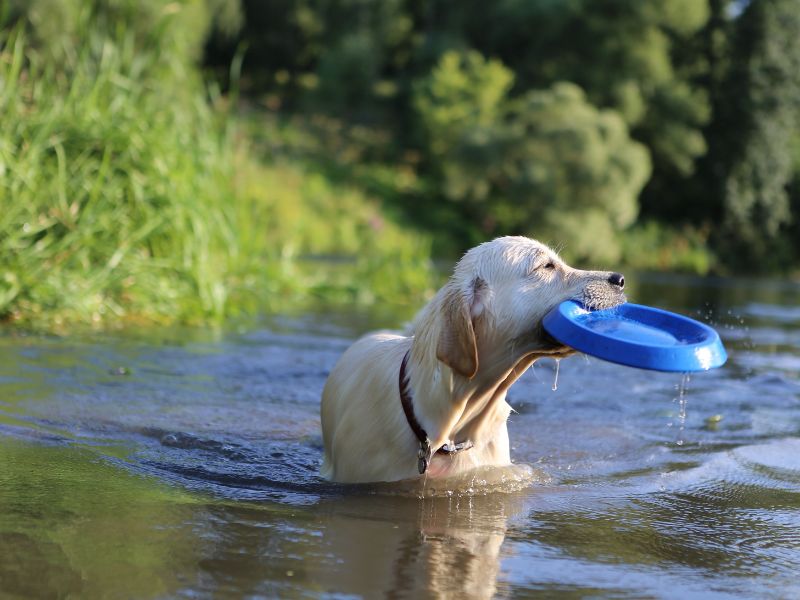
Training a Labrador puppy for hunting should ideally begin after they are at least six months old, but some trainers recommend waiting until eight months Everything Labradors. This timeframe ensures that they have mastered basic commands such as sit, stay, and come. The foundation of these essential commands allows for a smoother transition into hunting training.
It’s essential to establish a strong bond with your puppy before introducing them to hunting. Start with basic obedience training as early as 8 weeks old to ensure that your Lab puppy perceives you as a leader. This foundation will help during the more advanced hunting training later on.
When training for hunting, consider breaking down the process into smaller steps. Some crucial elements to teach during hunting training include:
- Developing a strong recall
- Introducing the puppy to water (for waterfowl hunting)
- Teaching the dog how to track scents effectively
- Getting your dog accustomed to gunfire sounds
- Retrieve training (both on land and in water)
Remember that patience and consistency are key factors during this process. Labrador Retriever puppies learn at different paces, and it’s important to tailor the training to suit your individual dog’s needs and abilities.
When to Start Training a Lab Puppy: Conclusion
Training a Labrador Retriever puppy is an essential process that helps build a strong and healthy relationship between the pet and its owner. It’s widely agreed upon that the appropriate time to start training a Lab puppy is as soon as they arrive in their new home, which is typically around 8 weeks of age.
Beginning with socialization and household manners at 8 weeks old creates a solid foundation for your Lab’s future training and development. As they grow older, their learning capabilities increase, and more advanced training techniques can be introduced. One of the key stages in Labrador puppy training involves focusing on specific aspects such as obedience, recall, and leash manners.
Remember that patience, consistency, and positive reinforcement are crucial factors in successful Labrador Retriever training. Keep training sessions brief, fun, and engaging to help your Lab puppy retain the information they learn. Additionally, puppy-proofing your home offers a safe and comfortable environment for your Labrador during the training process.
Starting training early not only sets the foundation for good behavior but also deepens the bond between you and your puppy. With time, dedication, and the right training techniques, your Labrador Retriever will grow into a well-mannered and loving member of your family.




